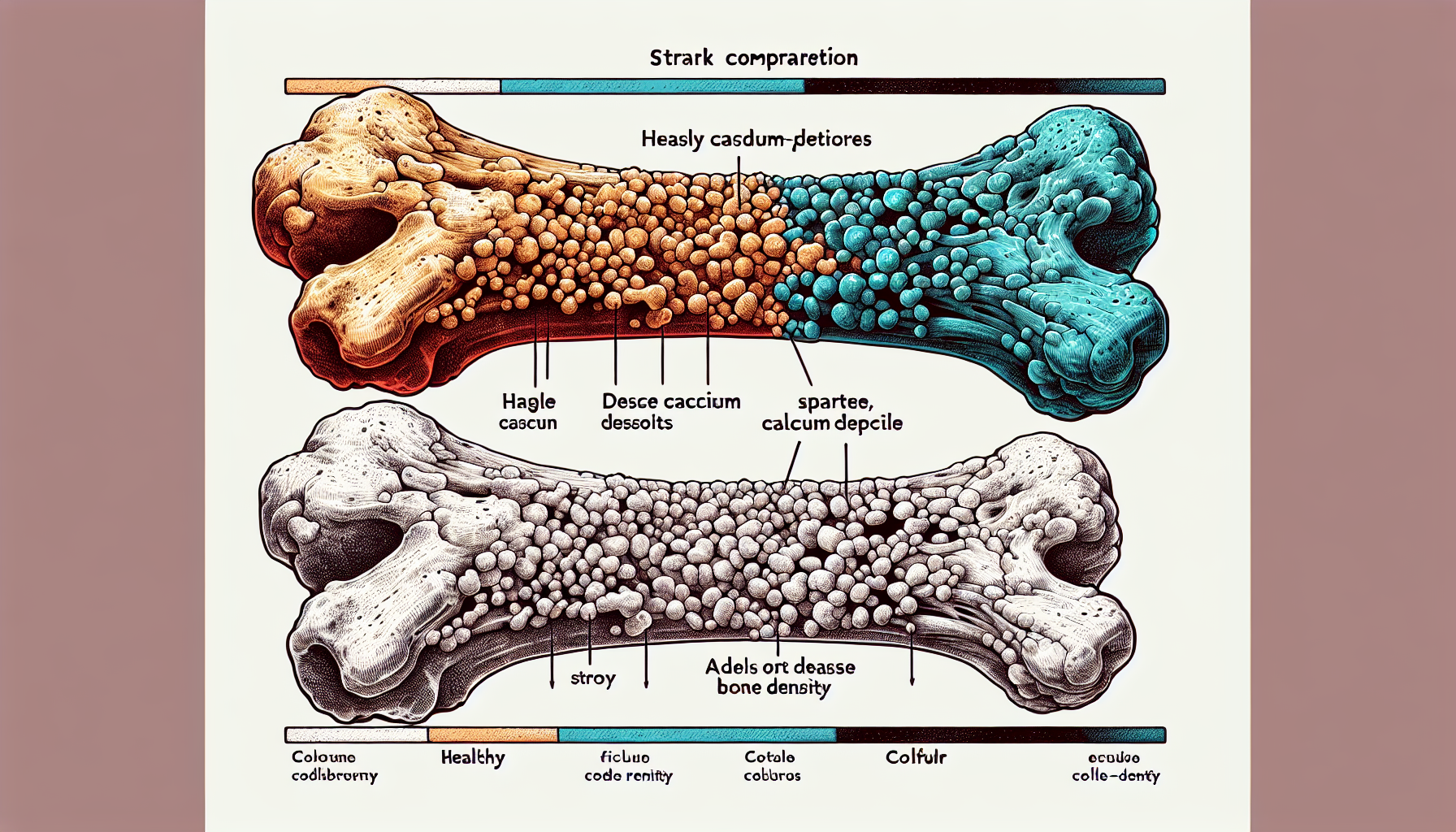Menopause is a significant life transition for women, often accompanied by various physiological changes. One of the most critical health concerns associated with menopause is the decrease in bone density, a condition that can lead to osteoporosis and increased risk of fractures. In this comprehensive guide, we will explore the underlying causes of bone density decrease during menopause and provide evidence-based strategies to prevent and mitigate this condition.
Understanding Bone Density and Menopause
Bone density refers to the amount of mineral matter per square centimeter of bones. It is a crucial indicator of bone strength and overall health. During menopause, the decline in estrogen levels can lead to an acceleration of bone loss, as this hormone plays a vital role in maintaining bone density.
The decrease in bone density during menopause is a multifaceted issue that can be influenced by lifestyle factors, nutritional intake, and genetic predisposition. It’s important to address these factors comprehensively to prevent significant bone loss and the associated complications.
Hormonal Changes
Estrogen is essential for bone growth and maintenance. As women reach menopause, the ovaries reduce their production of estrogen, leading to a decline in bone remodeling – the process by which bone tissue is continuously renewed. Without adequate estrogen, the balance between bone resorption and formation shifts, resulting in net bone loss.
Lifestyle Factors
Lifestyle choices can also impact bone health. Sedentary behavior, smoking, and excessive alcohol consumption have been linked to lower bone density. Conversely, engaging in regular exercise can help maintain and even improve bone strength during and after the menopausal transition.
Strategies for Maintaining Bone Density
Nutritional Interventions
A balanced diet rich in calcium and vitamin D is paramount for maintaining bone health. Calcium serves as a building block for bones, while vitamin D enhances calcium absorption and bone growth. Women are recommended to consume at least 1,200 mg of calcium daily, primarily through dietary sources such as dairy products, leafy greens, and fortified foods. Vitamin D can be obtained from exposure to sunlight, foods like fatty fish and eggs, and supplements if necessary.
For those considering dietary changes, understanding the bone density considerations for vegan diets is essential, as plant-based diets may require careful planning to ensure adequate nutrient intake.
Exercise
Physical activity is one of the most effective ways to combat bone density decrease. Weight-bearing exercises, such as walking, jogging, and strength training, are particularly beneficial as they force the body to work against gravity, stimulating bone growth.
Combining strength training with low-impact exercises can also support bone health by improving balance and coordination, reducing the risk of falls and fractures.
Medication and Supplements
In some cases, doctors may recommend medications to prevent or treat bone density loss. Bisphosphonates, for example, can slow bone breakdown, while hormone replacement therapy (HRT) may be considered to manage menopausal symptoms and support bone density.
For additional support, medication and supplements like calcium and vitamin D can be beneficial, especially for those who have difficulty meeting their needs through diet alone. It’s important to consult with a healthcare provider before starting any supplement regimen.
Lifestyle Adjustments
Quitting smoking and limiting alcohol consumption are critical steps in protecting bone health. Smoking has a direct, negative effect on bone density, while excessive alcohol can interfere with the body’s ability to absorb calcium.
Additionally, maintaining a healthy weight is important, as both underweight and obesity can negatively impact bone health. Understanding the impact of obesity on bone health can provide valuable insights for those needing to make weight-related lifestyle adjustments.
Advanced Strategies and Considerations
Sleep and Bone Health
Adequate sleep is essential for overall health, and its role in bone metabolism is becoming increasingly recognized. Sleep disorders can negatively affect bone density, highlighting the importance of addressing sleep issues as part of a comprehensive bone health strategy.
Holistic Approaches
Integrating natural remedies and holistic practices can complement conventional strategies for bone health. Practices such as yoga and tai chi can improve balance and coordination, while some herbal supplements may offer additional support for bone health.
It’s also essential to consider the role of overall health in maintaining bone density. The relationship between bone density and lifestyle diseases is complex, and managing conditions like diabetes and hypertension can contribute to better bone health outcomes.
Monitoring and Evaluation
Regular bone density testing is crucial for tracking bone health, especially for postmenopausal women at higher risk of osteoporosis. Tests like the DEXA scan provide valuable information on bone density levels, allowing for early intervention if needed.
Further Resources
For those seeking to delve deeper into the topic, the following niche resources offer valuable information:
- The National Osteoporosis Foundation provides guidelines and resources specifically for bone health during menopause (National Osteoporosis Foundation).
- The International Osteoporosis Foundation offers a comprehensive risk assessment tool to evaluate individual risk factors for osteoporosis (IOF Bone Health).
- The Menopause Society features articles on the latest research related to menopause and bone health (The North American Menopause Society).
Conclusion
Menopause is a critical time for bone health, but with the right strategies, it is possible to maintain and even improve bone density. Nutritional adjustments, regular exercise, lifestyle modifications, and appropriate medical interventions can collectively create a robust defense against bone density decrease.
By staying informed and proactive, women can navigate menopause with confidence, safeguarding their bone health for years to come. The journey to maintaining strong bones is ongoing and requires attention to detail, commitment to lifestyle changes, and an openness to seeking guidance from healthcare professionals.
For more information on bone health and related topics, visit Avix Health.



